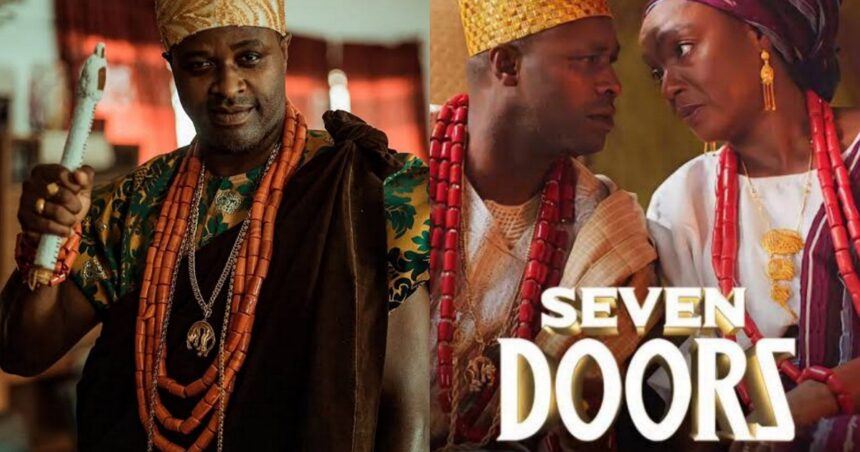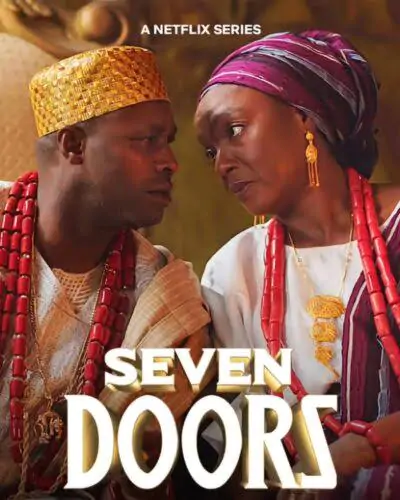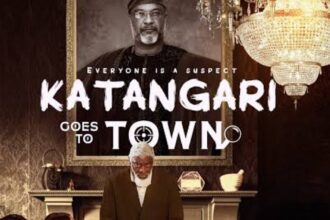“Seven Doors” is a welcome change from the monotonous epic narratives now popular in Nollywood.
However, the ethereal original music by Tolu Obanro that opens this first Femi Adebayo Netflix series is too similar to the warlike opening establishing sequence in “Jagun Jagun.” To better understand the present, Femi Adebayo attempts to blend the past and present through flashbacks.
“Seven Doors” takes place in Ilara, without a monarch for three years, in 19th-century Nigeria. When it came time to choose one, however, the oracle selected Adedunjoye (Femi Adebayo), who was hesitant at first but was convinced by his Igbo wife, Amaka (Chioma Chukwuka).
Members of his palace (Adebayo Salami, Jide Kosoko, and others) oppose him when he takes the throne because they want to put Prince Adeeyo (Muyiwa Ademola), a wealthy man, as king for their self-serving motives. Along with seizing property and violently evicting even destroying houses, these chiefs also become involved in corrupt land properties.
This simply makes one think of Ti Oluwa Ni Le (1993) by Tunde Kilani. However, the monarch is also subjected to spiritual attacks, which result in chaos and death of his subjects during his reign because of the iniquity of the father’s visit to the children.
Flashbacks are a major expositional tool used in this six-episode series to explain and make sense of what is happening. This over-reliance unintentionally makes the audience temporarily jaded, even while it doesn’t compromise the story’s narration or plot and instead gives it more credit.
Even though “Seven Doors” is a fictional film, it is set in a period of jingoism following Nigeria’s independence, so we should expect Amaka, an Igbo queen to a Yoruba king, to be envied and rivaled by her seven co-wives. However, the true source of the animosity isn’t her tribe; rather, it is merely small-scale arguments in polygamous settings. Therefore, this serves primarily as a tool to promote cultural harmony.
In the series, Aliu Gafar’s portrayal of Esusu is a revelation. Boldly, the actor played the part of the magical and wicked Esusu—the name’s basis is Esu, which is naively translated as Satan. He seemed to take great pleasure in the part.
The first three or four episodes of “Seven Doors,” which are directed by Femi Adebayo, his brother Tope Adebayo, and Adebayo Tijani, are engrossing to watch and set the stage for the rest of the series. However, the show gradually loses its appeal by the fifth episode, although it closes on a positive note.
Despite its confused didacticism about eternal existence, “Seven Doors” manages to combine history, fiction, and metaphysics in a way that makes for an engaging and delightful voyage.

















👏